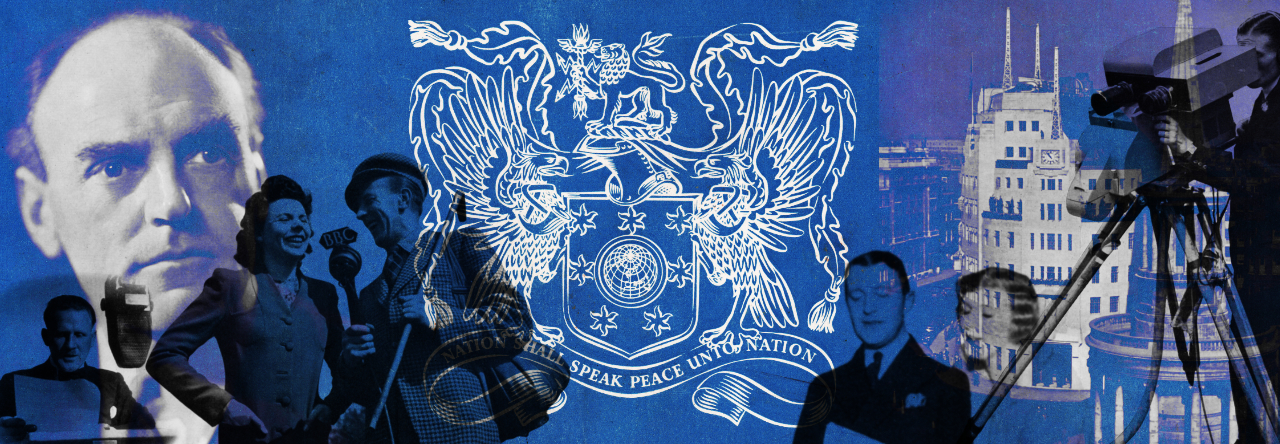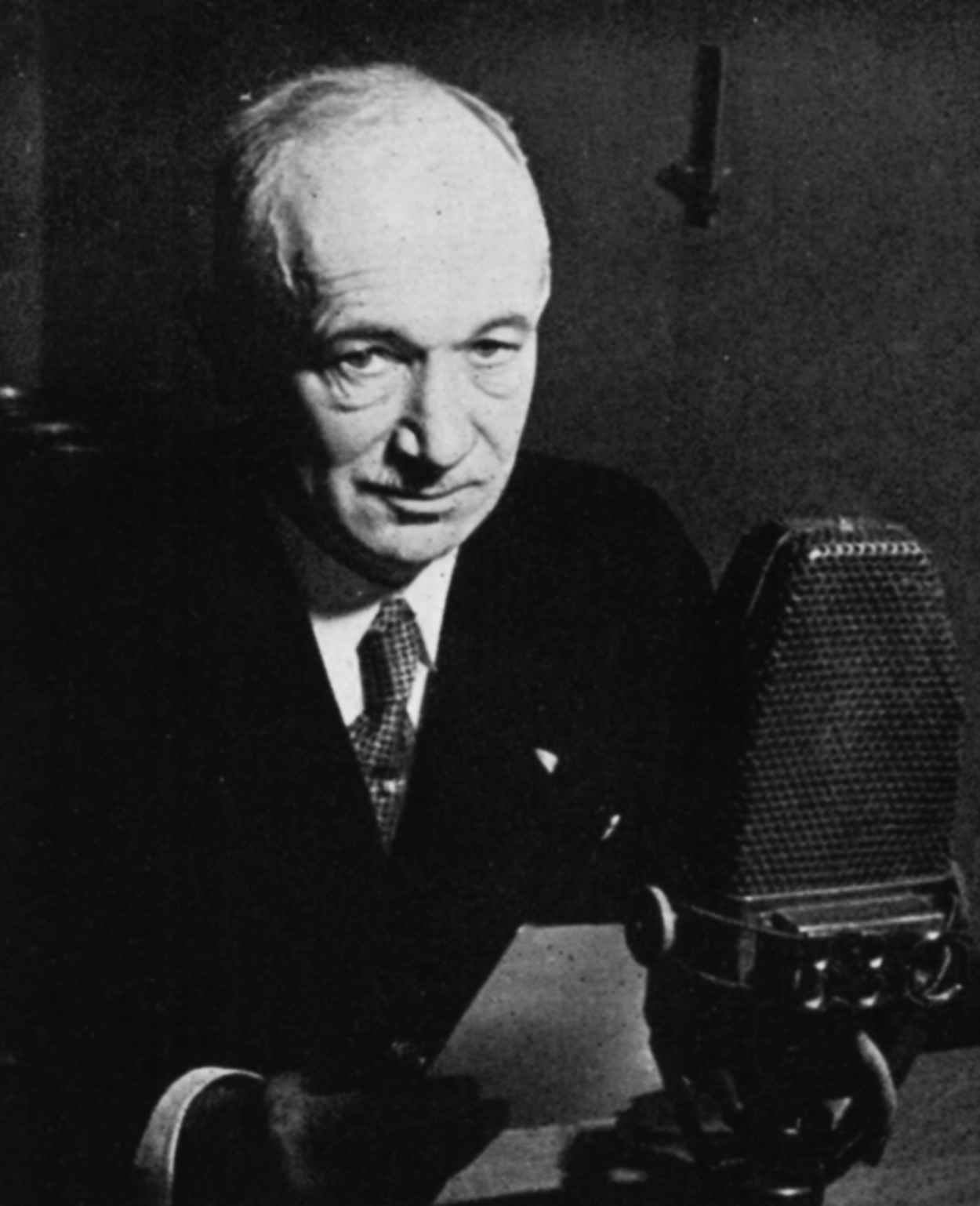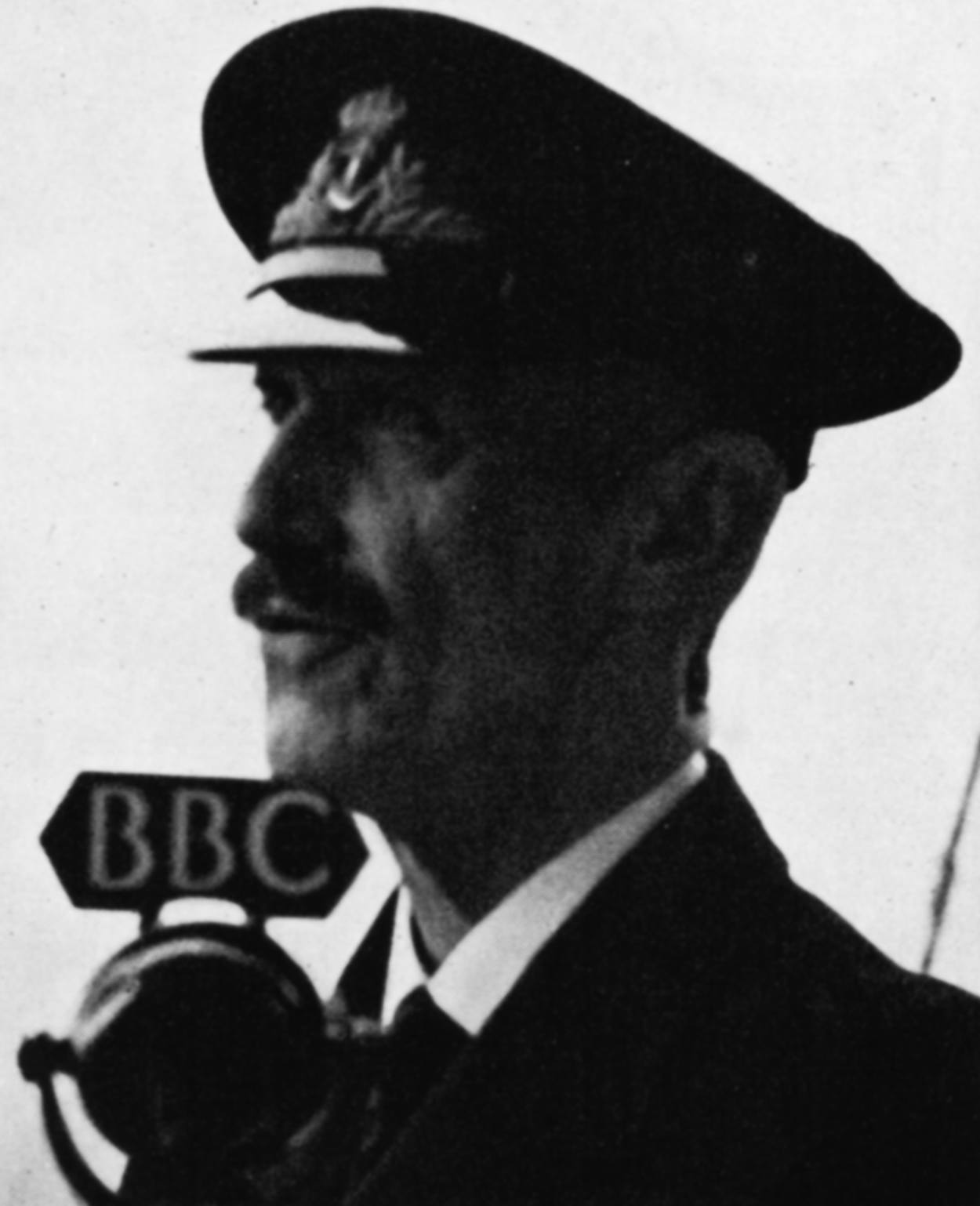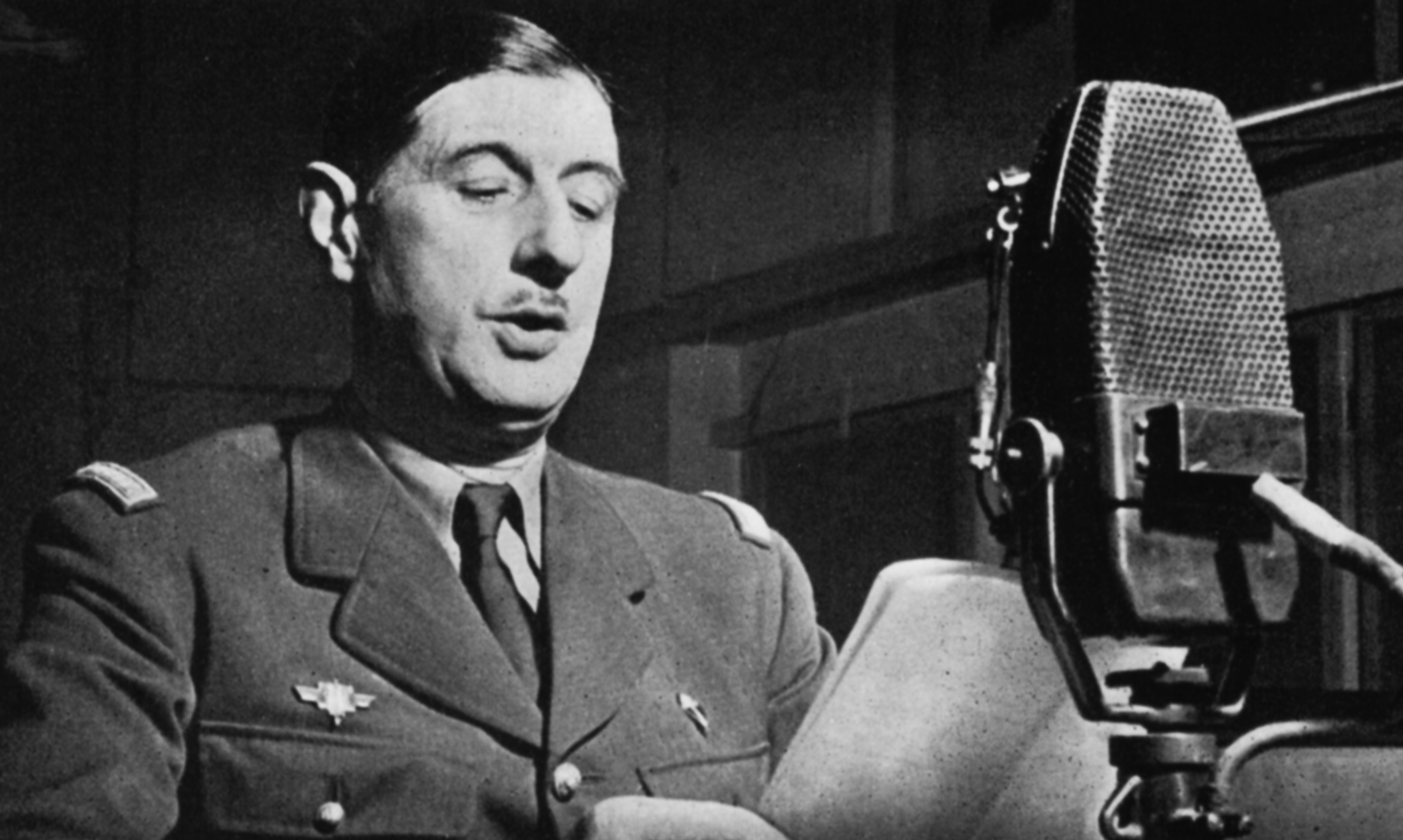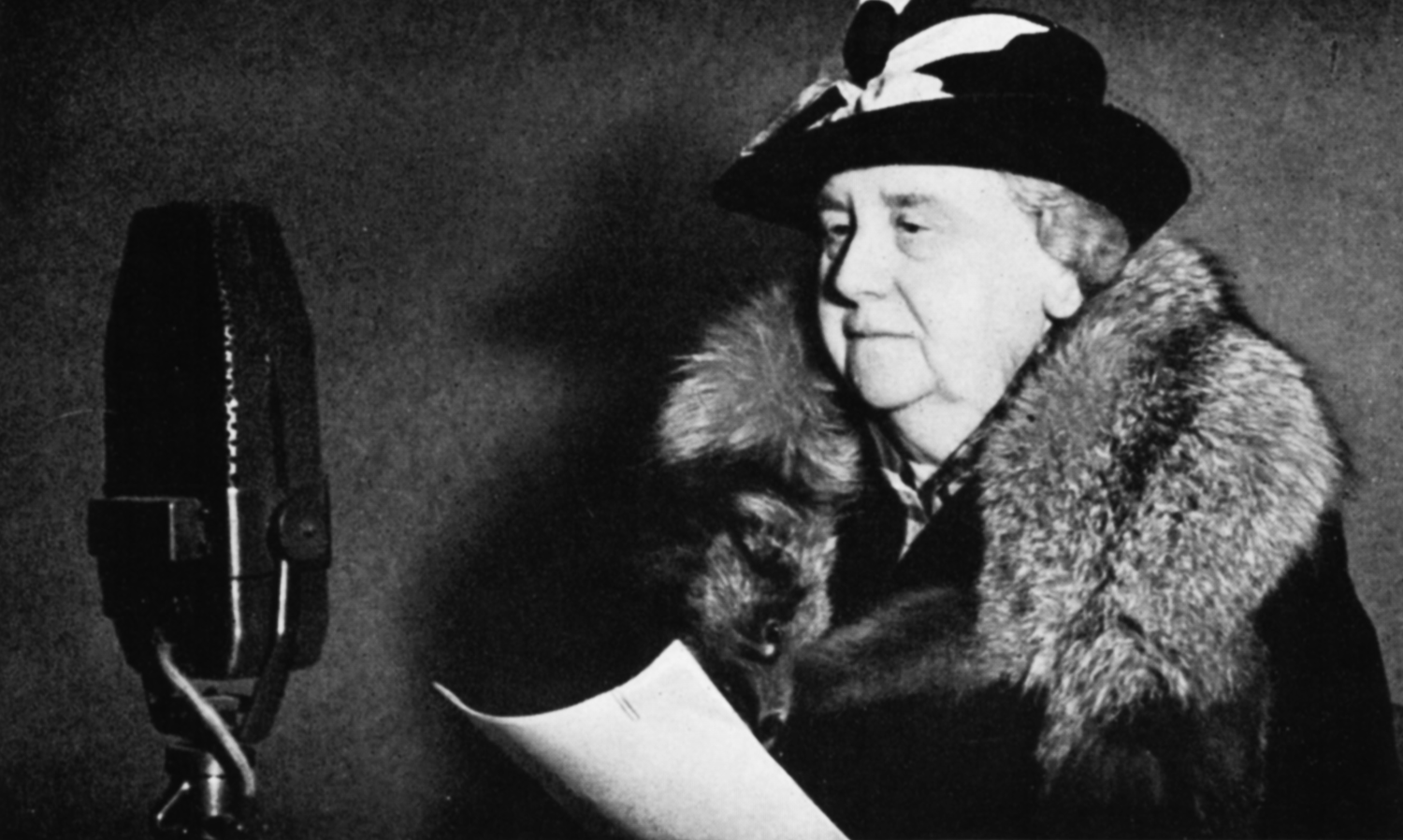Leaders in exile
WITH the coming of war the national broadcasting system which hitherto had addressed for the most part an English-speaking audience at home and in the Empire, developed into a huge, complex, multilingual instrument. That was perhaps the main impact of the war upon the BBC which, at the height of the conflict, was sending out the equivalent of six days’ broadcasting every day, carrying programmes in forty-eight languages and using more than eighty wavelengths for the purpose. Not least among its responsibilities so far as the over-run countries of Europe were concerned, was that of putting the leaders of resistance, whose headquarters was London, in touch with their enslaved peoples in whom a faith in freedom had not died. The heads of Allied Governments established in London made personal contact with the prison house of Europe.

